Fresh Ceasefire Call As Karabakh Conflict Escalates
Russia, the United States and France called on Monday for Armenia and Azerbaijan to agree an "unconditional ceasefire" after the neighbours began shelling major cities in an escalation of their conflict over the disputed Nagorno-Karabakh region.
Separatist forces in Karabakh -- an ethnic Armenian enclave that broke away from Azerbaijan in the 1990s -- reported firefights along the frontline and said the regional capital Stepanakert had again come under artillery fire.
Azerbaijan's defence ministry said Armenian forces were shelling several towns, including the country's second-largest city Ganja which was first hit on Sunday.
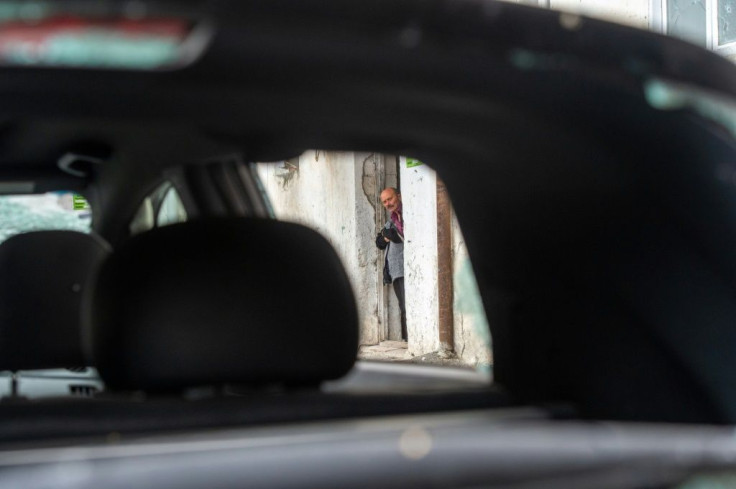
Increasing artillery fire on urban areas has raised concerns of mass civilian casualties in the conflict, which has already killed at least 260 people.
Late on Monday, Russia, the United States and France -- co-chairs of a mediation group -- issued a fresh call for an "immediate and unconditional ceasefire," hoping they would succeed in calming the fighting after previous statements failed to have an impact on the ground.
The three countries' foreign ministers said in a joint statement that the escalating conflict including attacks allegedly targeting civilian centres "constitute an unacceptable threat to the stability of the region".
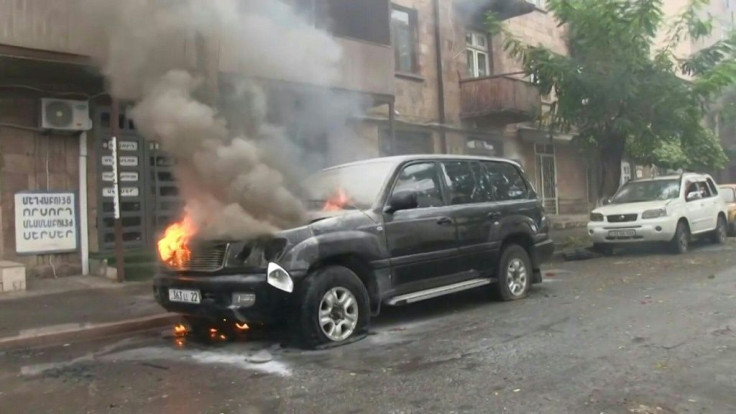
"The ministers call once again upon the conflicting parties to accept an immediate and unconditional ceasefire," the statement said.
Separately, Russian President Vladimir Putin discussed the conflict and "serious casualties" with Armenian Prime Minister Nikol Pashinyan and also called for an immediate ceasefire, the Kremlin said.
Neither Azerbaijan nor Armenia, which supports the breakaway region, has shown any sign of backing down so far.
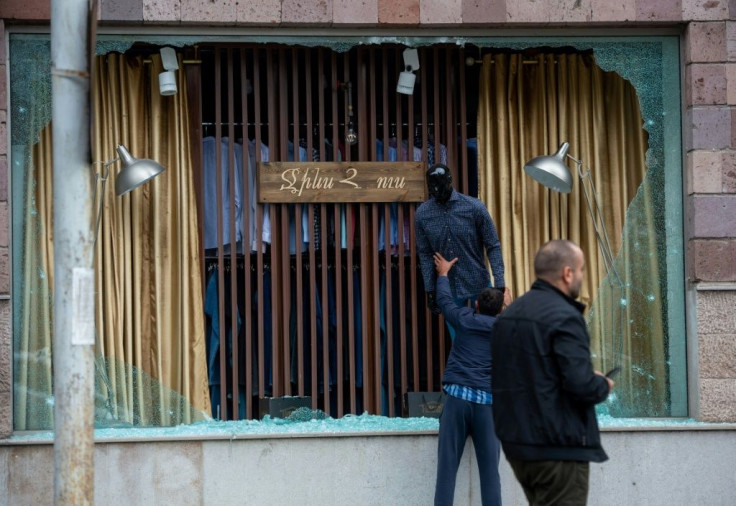
The Karabakh leadership said earlier in the day it had pulled back fighters in some areas of the frontline "for tactical purposes", after Azerbaijan claimed separatist soldiers were fleeing their posts.
The clashes broke out on September 27, re-igniting a decades-old conflict between the ex-Soviet neighbours over Karabakh and threatening to draw in regional powers Russia and Turkey.
Azerbaijan and Armenia have ignored international calls for a ceasefire and a return to long-stalled negotiations on the region.
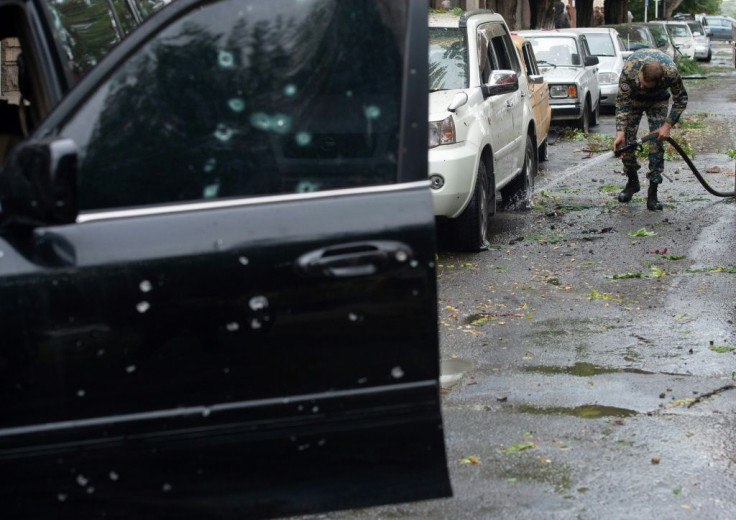
In Armenia's capital Yerevan, people expressed support for their troops fighting in Karabakh.
The town hall installed a giant screen on one of the busiest squares in the city to broadcast patriotic songs and residents have taken to hanging flags in the streets.
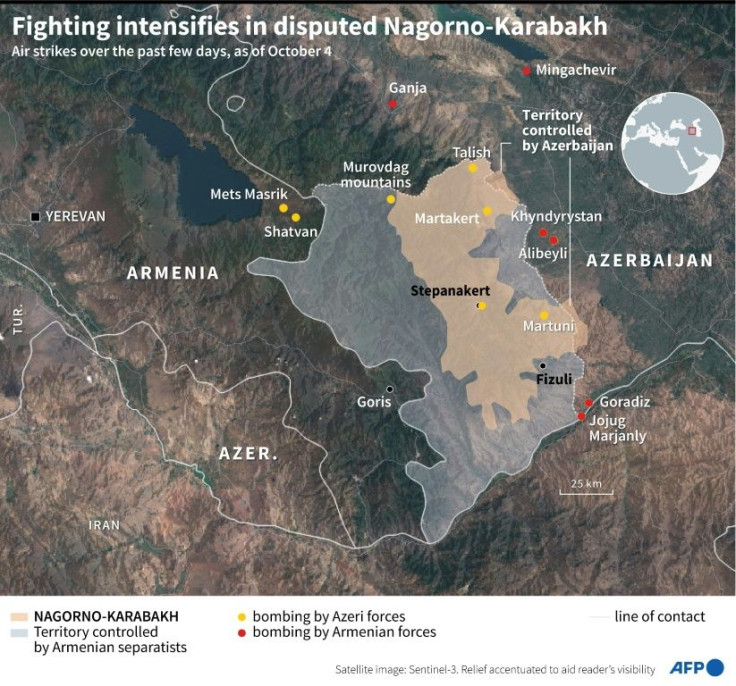
"We are going to win, the entire world needs to hear that no-one can defeat the Armenian people, we are unbeatable," said 57-year-old Gayane Arshakyan.
Stepanakert, a city of 50,000 in the heart of the mountainous Karabakh province, has been under steady artillery fire since Friday, with residents cramming into underground shelters.
The separatists' foreign ministry said Monday that shelling of Stepanakert had resumed at 6:30 am (0230 GMT).
It released video footage of repeated bursts of heavy shelling and of debris from seriously damaged blocks of flats, claiming Azerbaijan had used cluster munitions.
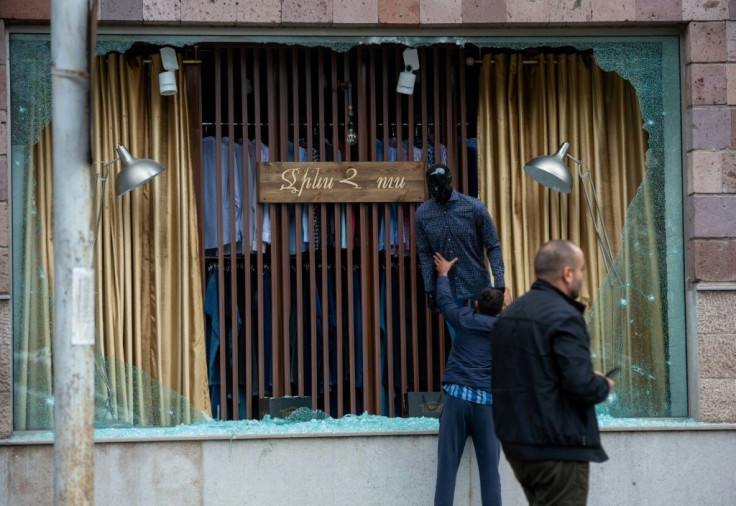
Azerbaijan for its part said Armenian forces were shelling the cities of Ganja, with a population of over 330,000, and Agjabedi, home to some 38,000, as well as the towns of Beylagan, Barda and Terter.
Hikmet Hajiyev, an adviser to President Ilham Aliyev, accused the Armenians of "attacking densely populated civilian areas" and claimed they had shelled Ganja's central market.
"Barbarism and vandalism. Sign of weakness and panic," he wrote on Twitter.
More than 40 civilians have been reported killed on both sides.
The International Committee of the Red Cross on Sunday condemned the reports of "indiscriminate shelling and other alleged unlawful attacks using explosive weaponry in cities, towns and other populated areas".
A witness in Stepanakert told AFP the city had come under intense artillery fire on Monday morning but that shelling had eased by mid-day.
The streets were largely empty, the witness said, with many people taking shelter in basements.
Convoys of residents have fled the city for Armenian territory, with groups gathering in the border town of Goris hoping to find passage on to the capital Yerevan.
In a fiery address to the nation on Sunday, Aliyev set conditions for a halt to the fighting.
He said Armenian forces "must leave our territories, not in words but in deeds," provide a timetable for a full withdrawal, apologise to the Azerbaijani people and recognise the territorial integrity of Azerbaijan.
"Nagorno-Karabakh is our land. We have to go back there and we are doing it now," Aliyev said.
"This is the end. We showed them who we are. We are chasing them like dogs."
Karabakh's declaration of independence from Azerbaijan during the collapse of the Soviet Union sparked a war in the early 1990s that claimed 30,000 lives.
Talks to resolve the conflict have made little progress since a 1994 ceasefire agreement.
© Copyright AFP 2024. All rights reserved.





















